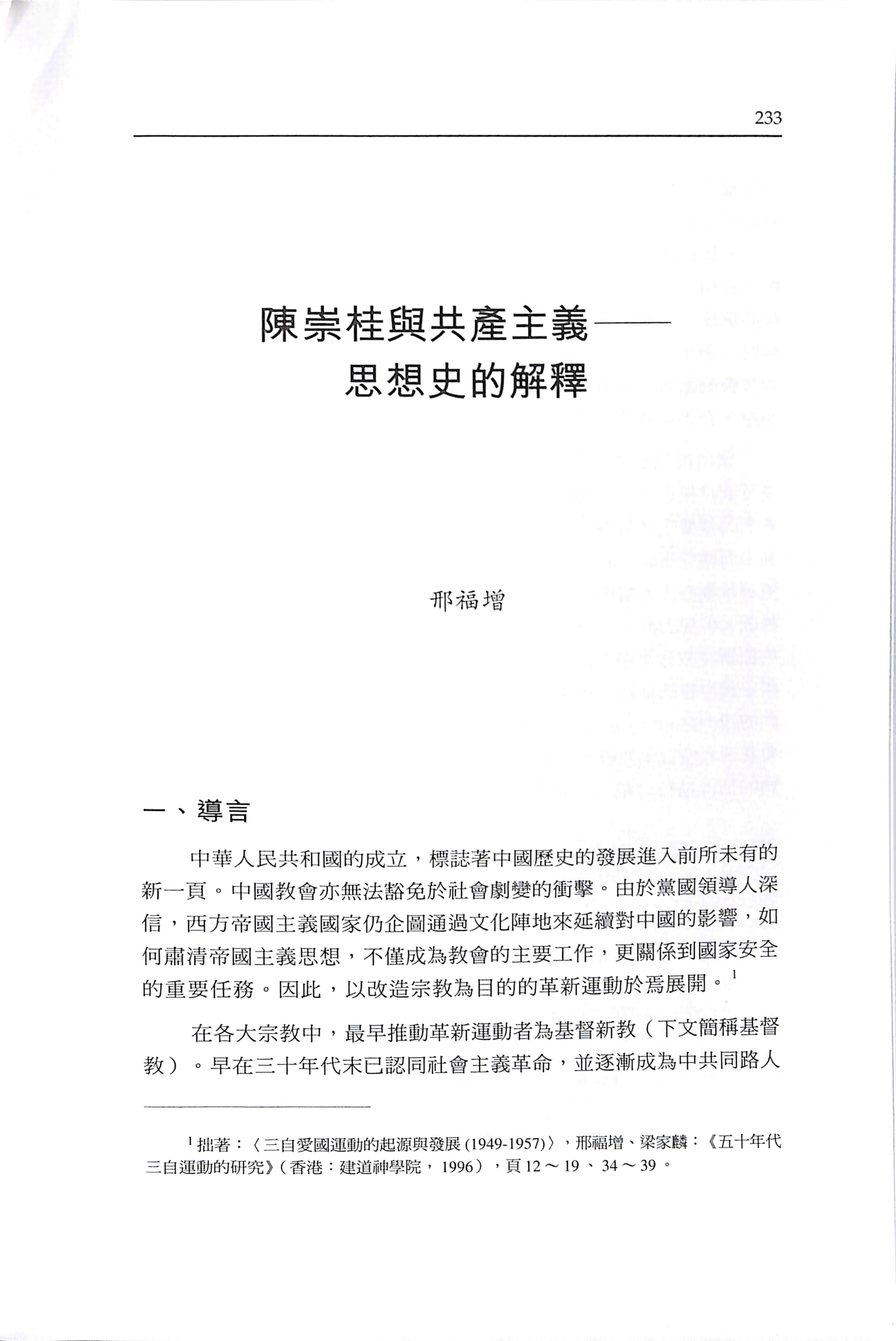陳崇桂與共產主義——思想史的解釋/邢福增
刑福增
撮要
陳崇桂是二十世紀中國教會的著名領袖,在神學教育、文字工作及巡迴佈道方面,都對華人教會有深遠的影響。不過,中共建國後,由於他對新政權的認同,並積極參與三自革新運動,在國內外均引起廣泛的爭議。本文從思想史的進路入手,旨在探討陳氏在本世紀二十年代至五十年代初間,對共產主義的態度。筆者特別強調,要充分解釋陳崇桂思想的轉變,我們不能忽視其思想傳統與時代處境間的互動反應。陳崇桂對共產主義的態度,恰好反映出中國基要主義者的思想歷程及信仰掙扎。
ABSTRACT
Chen Chong-gui (Marcus Cheng) is an important church leader of the twentieth century. He has exerted great influence on theological education, literary evangelism and itinerant preaching. However, his positive attitude towards the newly established Communist government and his participation in the Three-Self Patriotic Movement after 1949 were much criticized. This article tries to analyze his changing attitudes towards communism from 1920’s to early 1950’s. In order to make a balanced explanation of the shift of Chen’s thought, we should emphasize the conscious responses Chen made to his situation. The writer believes that Chen’s responses reflected the dilemma and predicament of a Chinese Fundamentalist.
原載於《教牧期刊》第8期及《建道學刊》第13期合刊(1999年12月),頁233-274。
Latest Articles
新手牧者研究計劃(三):新手牧者的身心靈狀態 / 盧慧儀
2025 年 11 月 19 日
個體與關係:滕近輝思想中「深化」的靈性觀 / 倪步曉
2025 年 11 月 18 日
香港九龍塘基督教中華宣道會之起源和發展史/陳智衡
2025 年 10 月 20 日
Highlights
[電子書]困境與抉擇:「建道研究中心30週年誌慶」跨學科研討會論文集/廖炳堂、倪步曉主編
2025 年 1 月 2 日
從梧州到長洲:建道神學院125年的挑戰與恩典 / 陳智衡
2023 年 10 月 1 日
微小教會的見證/高銘謙
2023 年 6 月 1 日







